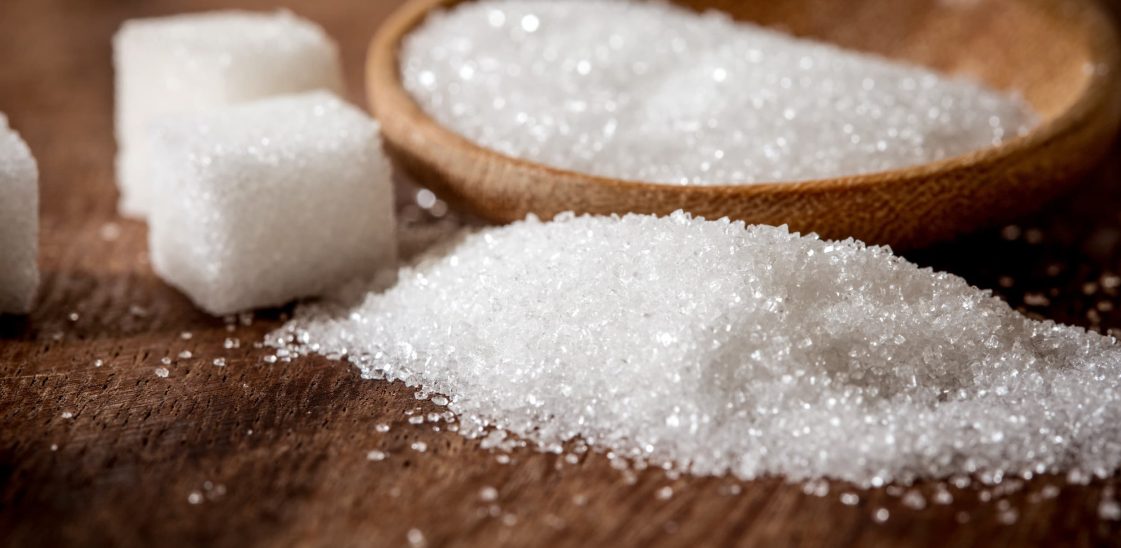
How to satisfy a sweet tooth without sugar
If you’ve got a sweet tooth, then you may feel conflicted about the things you eat. On the one hand, sweet treats are delicious! On the other, it’s well documented that eating sugar can damage your teeth.
Fortunately, it’s not the case that you need to cut out sugar altogether.[1] Sugar causes damage when it is consumed by bacteria in your mouth and turned into acids. This acid then attacks the enamel and dentine that makes up your teeth, causing cavities.[2]
To combat this, it is recommended to reduce your intake of ‘free sugars’ to less than 5% of your daily total sugar intake. Free sugars include added sugar as well as the sugar found in juiced or blended fruits. The sugar contained in whole or chopped fruit and veg is locked away and less likely to damage your teeth, but once it has been blended or juiced, the sugars are free – hence the name – to cause cavities.[2]
Additionally, it’s advised to limit your consumption of free sugars to mealtimes. This is because the acid attack effects of free sugars only last for a certain duration, so by allowing a few hours between meals, you essentially give your teeth a break from these effects. You might also like to rinse your mouth with water after meals, as this can help to wash away sugar.[3]
Sugar-free sweet treats
The good news is that cutting down on your free sugar intake doesn’t have to mean never eating anything sweet. Instead, you can swap out high free sugar treats for those that don’t contain these kinds of sugar but which still provide something sweet for you to enjoy.[4]
Fruits
As we’ve mentioned above, whole fruits don’t contain free sugars, as the sugar is continued within the structure of the fruit. Lots of people therefore like to swap out sugary snacks or desserts for fruits – as they still provide plenty of flavour and sweetness without being as damaging to your teeth.
The caveat here is that fruit juices and smoothies do contain free sugars, as the fruits within have been blended or pressed to release the sugar. These drinks can still provide nutritional value as one of your five a day, but drinking large amounts of them or drinking multiple types provides no more benefit than drinking a single 150ml glass. Reducing the amount of fruit juices and smoothies you drink will therefore help to limit your free sugars intake.[4]
Sweet vegetables
Like fruits, vegetables contain sugars that are locked away and less likely to harm your teeth. While vegetables tend to be more savoury than sweet, some varieties can make for a sweet treat, such as sweet potatoes, pumpkin or sweet peppers. In some cases, the way you cook different types of veg can change how they taste.
Again, blended vegetables do contain free sugars and contribute to tooth decay. Only have 150ml of fruit juice, vegetable juice or smoothies in a single day.[4]
Spices
In some recipes, you may be able to switch out added sugar for other sweet spices such as cinnamon, nutmeg or ginger. This can help you to cut down on your sugar intake while still enjoying sweet foods – and it can be especially helpful if you find you need extra sweetness to eat healthy foods such as porridge.
Sugar-free extracts, sweeteners and syrups
Lastly, take a look at the things you have in your cupboard to sweeten your foods and drinks. You might have sugar, honey or treacle, for example. In many cases, however, you can buy sugar-free variants of these foodstuffs at the supermarket, allowing you to still get that sweet feeling without adding sugar to your foods. For example, sugar-free coffee syrups or sweeteners can be excellent for adding to hot drinks like tea or coffee – and cutting out sugar in these drinks can really add up if you have them several times a day.
You can also look out for sugar-free varieties of other favourites, such as cordials, fruit squashes or fizzy drinks. Some regular fizzy drinks can contain as much as 35g of sugar – so even making one swap a day can help to reduce your intake in a big way.[4]
There are lots of methods you can use to try to reduce your sugar intake, but remember that that is only one aspect of looking after your teeth. Even after you’ve reduced your free sugars intake, it’s still important to maintain a thorough dental hygiene routine and use tools such as Dentek’s Eco Triple Clean floss picks which have long handles that make it easier to clean those hard to reach areas around your teeth.[5]
Resources
[1] – https://www.nhs.uk/live-well/eat-well/food-types/how-does-sugar-in-our-diet-affect-our-health/
[2] – https://www.who.int/news-room/fact-sheets/detail/sugars-and-dental-caries
[3] – https://www.betterhealth.vic.gov.au/health/conditionsandtreatments/Tooth-decay
[5] – https://www.nhs.uk/live-well/healthy-teeth-and-gums/take-care-of-your-teeth-and-gums/




